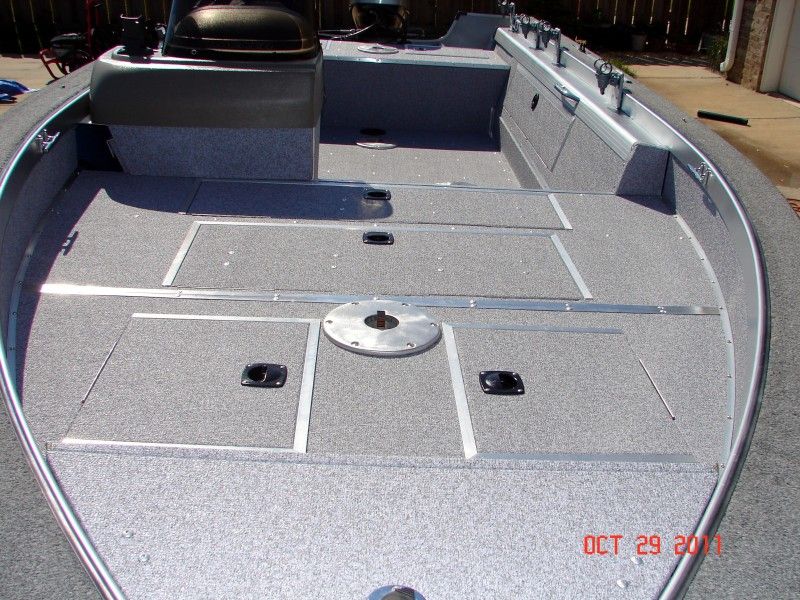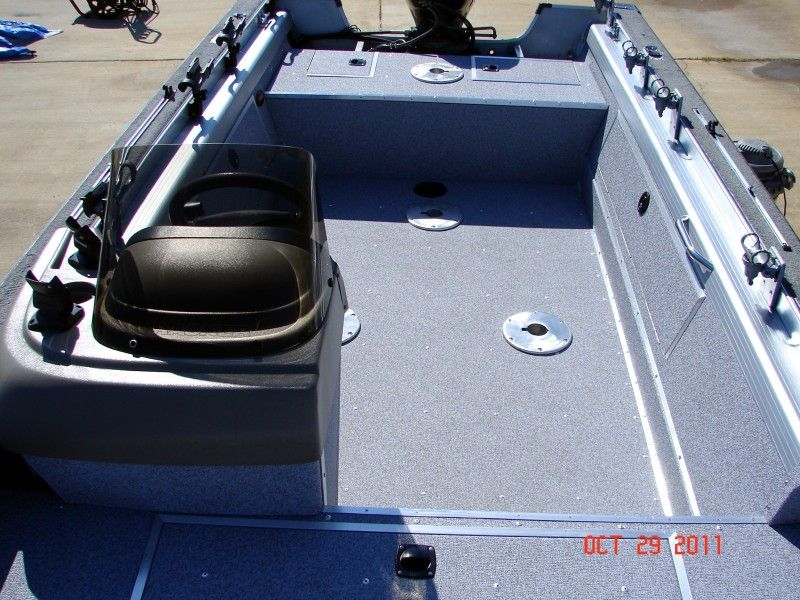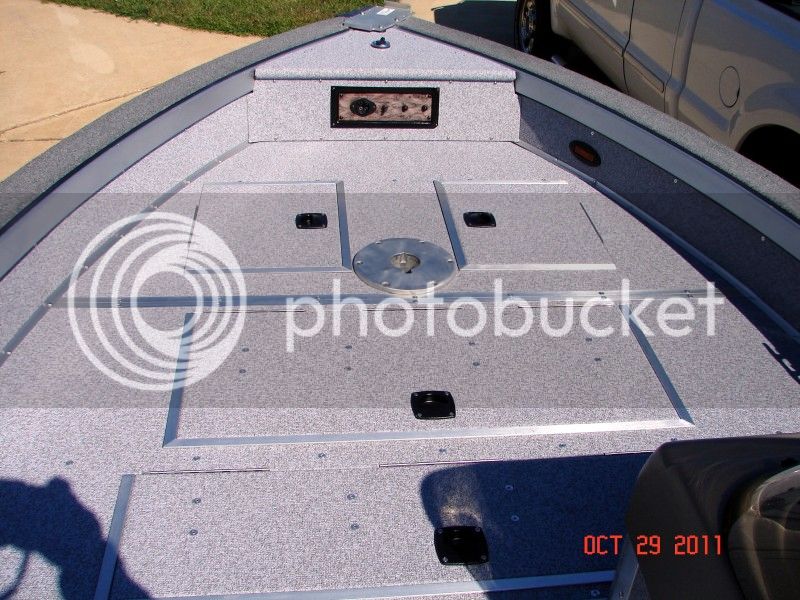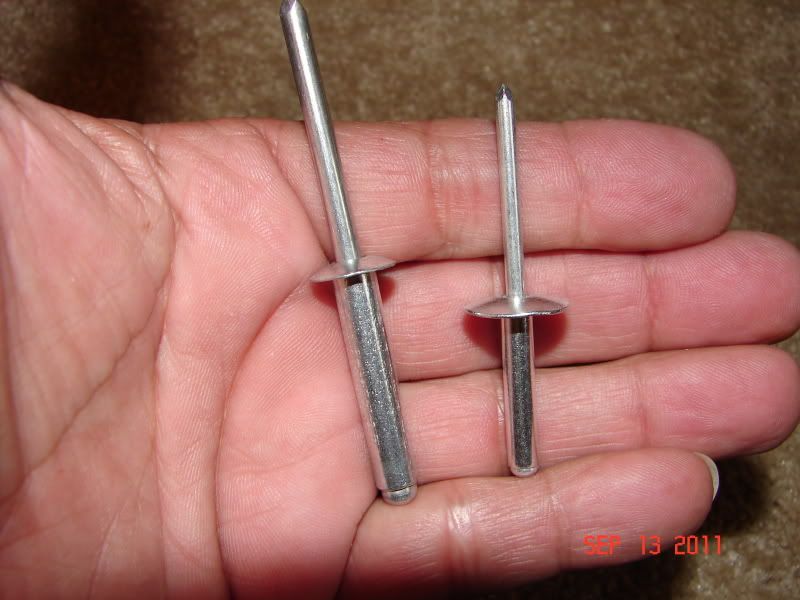I have a few areas on my aluminum boat floor that has a slight rise and makes/sends a nice sound (when walking there) alerting all fish in a five state area that I'm coming after them. This is obviously undesirable and can be and should be corrected before laying carpet.
Remove this floor if possible, put closed seal foam (You can get this at Home Depot or Lowe's in big sheets or buy pool noodles.) in, then rivet back down. I suggest 3/16" closed end rivets, all aluminum.
I have never used a rivet gun, but I know several on this forum can steer me in the right direction.
I am considering one from Harbor Freight Tools: Heavy Duty 17-1/2" Hand Riveter with Collection Bottle made by Pittsburgh. It uses 3/32", 1/8", 5/32", 3/16" and 1/4" size rivets.
https://www.harborfreight.com/heavy-duty-17-1-2-half-inch-hand-riveter-with-collection-bottle-66422.html
I have this tool and I've bought and use a lot of tools from Harbor Freight. Here's what I've learned:
1. They make good tools, but at their price point, they don't do much quality control. In many cases, they are a very similar tool to some you can see at the big box stores, where you pay a lot more for the same Chinese made tool.
2. When you buy a Harbor Freight tool, check it out closely at the store if you can. If not, open it immediately when you get home, take it apart, remove any nasty machining leftovers, grease, relube as necessary with American lubes, and check for flaws. If it's a machine/power/air/gasoline tool, run it immediately and make sure it works properly.
3. If it works out of the box, it will work for a long time.
4. If it doesn't work out of the box, return it immediately to Harbor Freight and exchange for another. Occasionally, you may get two in a row that are bad. But I've never gotten three bad tools in a row.
5. Because batteries are problematic anyways, I avoid their battery powered tools. Otherwise, I've been very happy with most of their stuff.
6. This tool is big, very strong, but because of it's size and how it works, it can't get into some areas very well and is awkward to me to operate. It also takes a good bit of muscle.
1) Is this the tool I need to better secure the aluminum floor to my jon boat?
It will do the job and do it well. I suggest you also get a standard rivet gun. If you have a compressor, buy one of these instead:
https://www.harborfreight.com/air-tools/riveters/3-16-inch-air-hydraulic-riveter-93458.html
You will need to take it apart, clean it, lube it with American lube and reassemble while doing a quality control check, but it is an excellent arm saver and sets 3/16" rivets with zero effort on your part, just squeeze the trigger and boom, rivet set beautifully. Get a 20% coupon online and wait till it goes on sale. You won't regret it.
2) If so, what size rivets should I choose?
3/16" is generally what the manufacturer's use for most boat assembly. If you're using plywood for floors, I would suggest 1/4" rivets. In either size, I would go with closed end aluminum rivets. I am installing .125" (1/8") aluminum flooring in my boat. (see my sig, lots of information about tools) and 3/16" rivets that are 1/2" long. They are working beautifully for me. BTW, most guys buy a single box or bag. I suggest buying 300 right off the bat. You will save more than the cost of shipping or gas to go get more many times over and you'll have spares on hand if you need to do a boat repair later down the road.
3) I'm assuming I need to use aluminum rivets verses stainless steel, is this correct?
Yes, it is.
4) What other tips or things to avoid should I consider?
Measure ten times and cut once. Make good templates of the hull. Smooth the edges of your material. Consider how things will look before you install them. Mock up stuff and see how it looks before final assembly. Use quality materials if you can afford them. They will last much longer and give you satisfaction long after the other stuff falls apart.
My boat is a 1754 Tracker Grizzly
Nice boat.
/quote]






